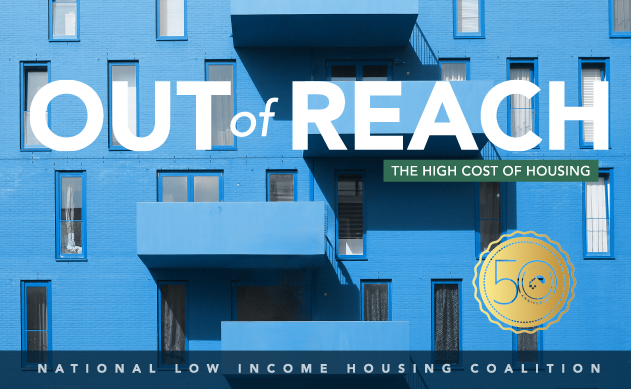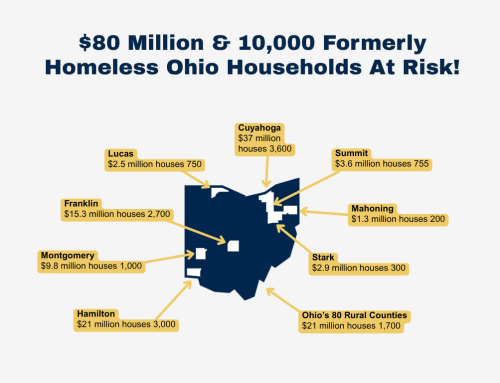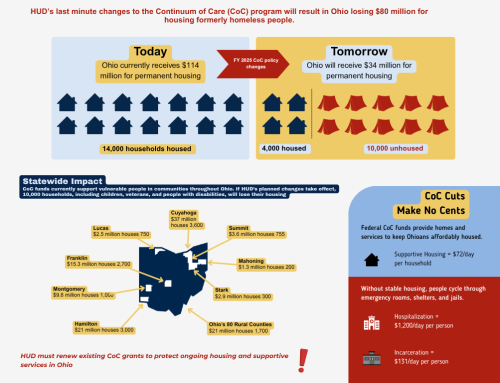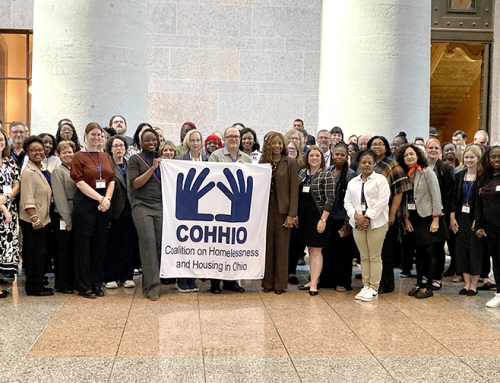June 27, 2024
Report Highlights Growing Gap Between Rents and Wages
Full-time workers need to earn at least $20.81/hour just to afford a modest two-bedroom apartment in Ohio, according to a report jointly released Thursday by the National Low Income Housing Coalition and the Coalition on Homelessness and Housing in Ohio.
The 2024 Out of Reach Ohio report reveals a significant gap between renters’ income and the cost of rent, which has increased rapidly in recent years. Of the 10 jobs with the most employees in Ohio, only two earn more than the statewide $20.81/hour 2-bedroom Housing Wage – general operations managers and registered nurses.
In some areas, the 2-bedroom Housing Wage is considerably higher than the statewide average. For example, renter households living in the Columbus area need to earn at least $25.04/hour to afford a two-bedroom apartment. The Housing Wage in Cincinnati is $22.98/hour and in Cleveland it’s $21.31/hour.
COHHIO Executive Director Amy Riegel said Ohio’s statewide Housing Wage increased nine percent since last year’s report.
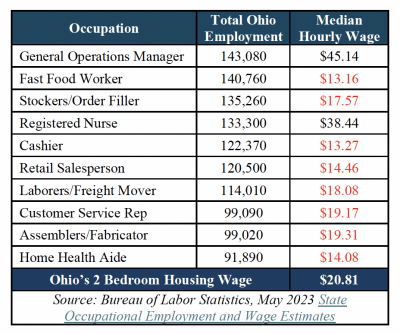 “Wages for Ohio’s most common jobs have increased significantly since the pandemic. Employers are trying to keep pace with inflation, but the skyrocketing cost of rent has effectively erased these wage gains, pushing affordable homes out of reach for a large swath of Ohio’s workforce,” she said.
“Wages for Ohio’s most common jobs have increased significantly since the pandemic. Employers are trying to keep pace with inflation, but the skyrocketing cost of rent has effectively erased these wage gains, pushing affordable homes out of reach for a large swath of Ohio’s workforce,” she said.
Rapidly increasing rents are directly related to rising rates of housing insecurity. Last year, Ohio landlords filed nearly 108,000 eviction cases – more than any year since 2015. And homelessness in Ohio increased seven percent in 2023 over the previous year.
“Aging Ohioans and people with disabilities living on a fixed income are especially vulnerable to rent shock,” Riegel said, noting that Social Security payments have increased only minimally in recent years. “Ohioans who worked hard for 40 years or more should be enjoying their golden years. Instead, many are rationing medications and wondering how they’re going to feed themselves and pay the rent.”
Riegel said state policymakers took some initial steps to address Ohio’s housing affordability crisis in last year’s budget, but she urged them to do more. For example, lawmakers should consider ways to strengthen the Ohio Housing Trust Fund, the primary source of state funding for local housing and homelessness programs.
NLIHC President and CEO Diane Yentel urged Congress to tackle the housing affordability crisis afflicting the entire country.
“This year’s Out of Reach report shows that despite rising wages, cooling inflation, and low unemployment, low-wage workers and other renters continue to struggle with the high cost of rent,” she said.
“Addressing the challenge requires long-term federal investments in affordable housing. As evidenced during the COVID-19 pandemic, federal policies and resources play a pivotal role in establishing a robust housing safety net, preventing evictions and homelessness, and mitigating housing instability among renters with the lowest incomes,” Yentel added. “Likewise, federal renter protections are needed to ensure decent, safe, and accessible living conditions for tenants around the country.”
Additional information: NLIHC’s Out of Reach page


